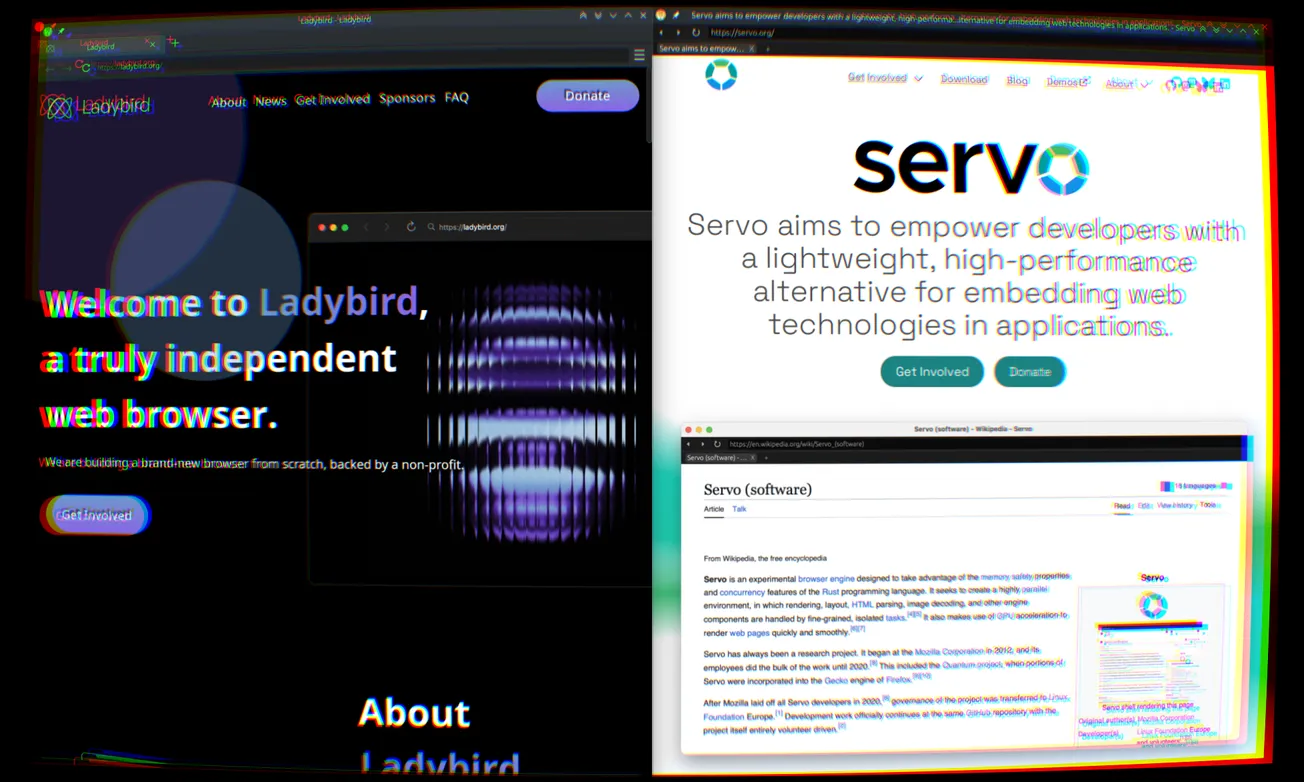Table of Contents
If you are keen on managing your email locally, you will have certainly used Thunderbird at some point. Thunderbird is a pretty amazing, full-featured mail and calendar client by Mozilla that is available free and open source for every major desktop operating system.
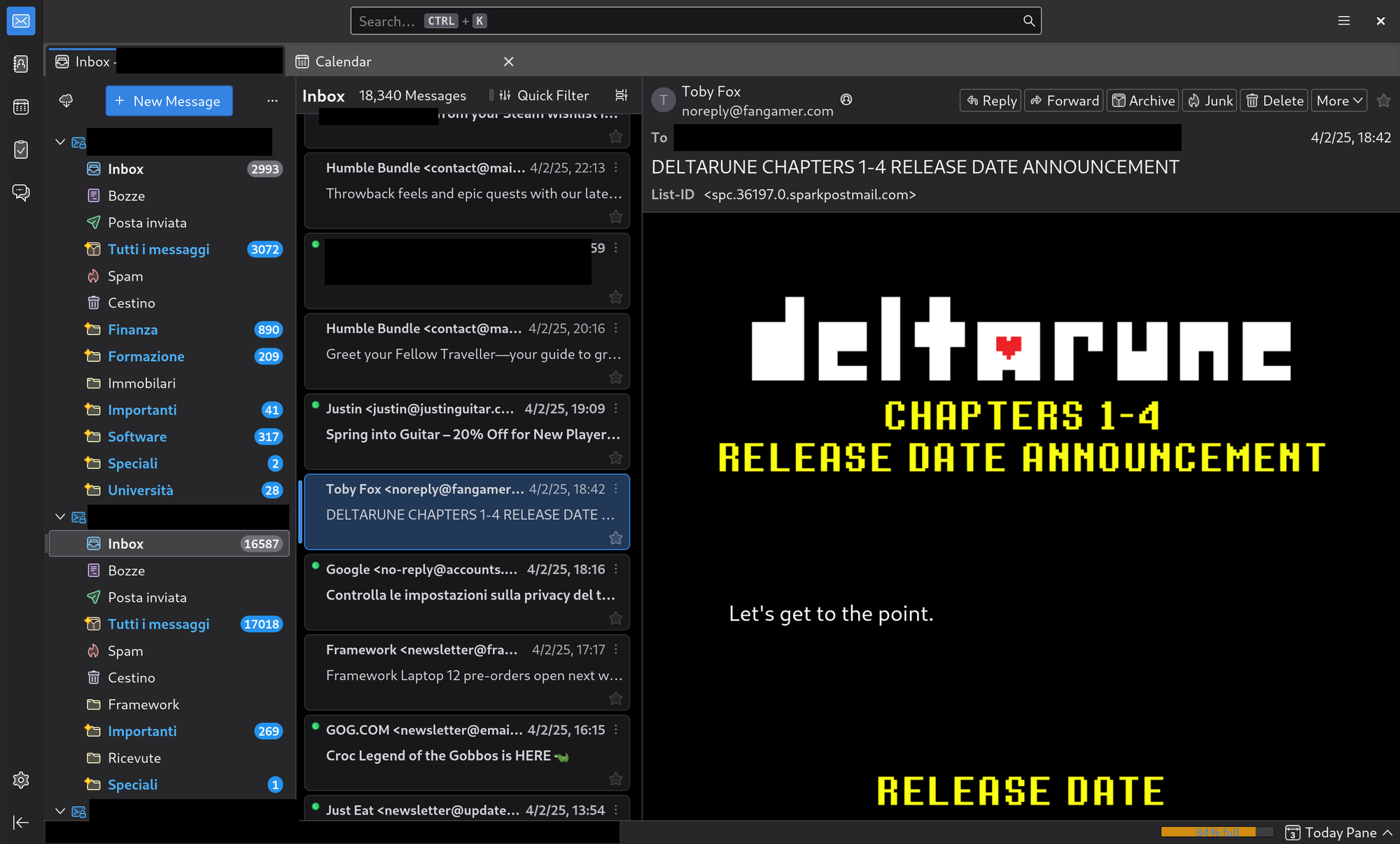
Thunderbird and I actually go way back: I still remember when I was just in the phase of migrating from Windows to Linux as my main operating system, and one of the main challenges I was facing was finding something that could replace Microsoft Outlook. When I came across Thunderbird, I just knew I had found what I was looking for, and I have stuck with it since.
Thunderbird is very popular, for all the right reasons. It is the best tool I know of to manage all of your email addresses, task lists and calendars in one place, comfortably, yet, without missing any feature.
Since I started using it in 2018, though, Thunderbird has changed a lot. It has gone through a major redesign on the desktop side, and Mozilla has even launched a mobile version based on K-9 Mail, allowing fans of the desktop version to take Thunderbird on the go and use it everywhere.

After completely overhauling its design and taking on the mobile space, today, Thunderbird expands into yet another space: it's launching its own full-fledged mail server.
Enter Thundermail
On April 1st — admittedly, quite a dangerous date to launch anything — Mozilla has launched a landing page for a new service called Thundermail. While we do not have a lot of information yet, the first thing we can clearly see is that the project markets itself as part of the “Thunderbird Pro” moniker, a set of optional premium services the Thunderbird team is working on.
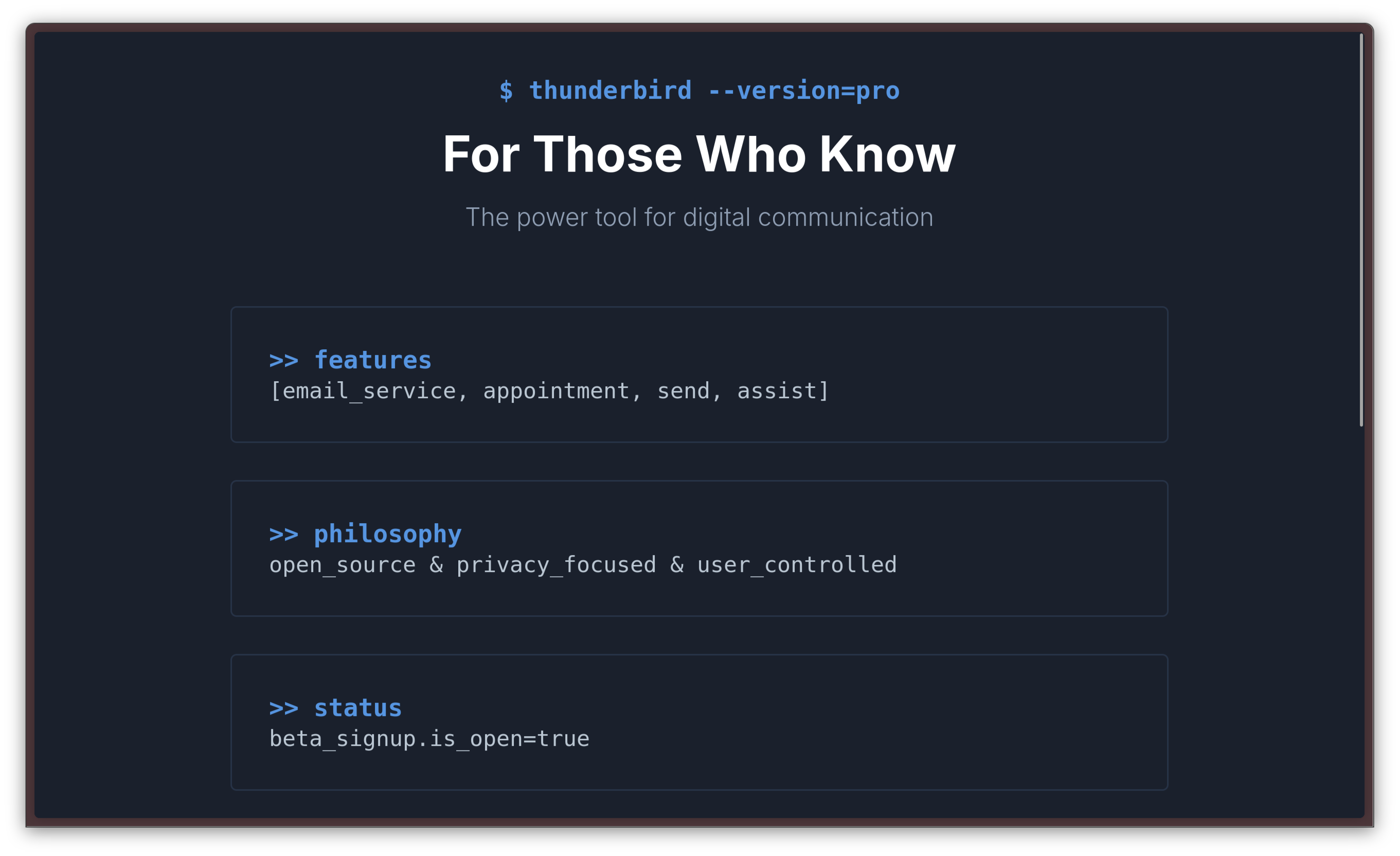
In case you are getting apprehensive, don't worry. Your favorite mail client is not going freemium, and it is not going to differentiate between free and paid users. Thundermail, is something completely different: it's a full-on hosted e-mail provider that seeks to compete with major players like Gmail and Outlook.
Mail for the privacy-conscious power user
From the little information we know, it looks like Thunderbird will be an absolute boon to power users. Mozilla teased there will be great attention to user configurability, including the choice of domain. By default, a user will be able to choose between a thundermail.com and a tb.pro domain, as well as, optionally, any custom domain a user might own.
Mozilla developers claim that the main way Thunderbird will distinguish itself from the big players is the privacy aspect. While mail services like Google's Gmail ecosystem constantly scan mail to use it to train AI and help create a profile for the user, Thundermail takes the polar opposite direction. All user data is kept private, without using it for an AI training, tying it with an advertising ID or selling it. The service will also serve no ads — which is something to be expected by a service that is going to be a premium offering.
Getting Thunderbird to the masses
One of the reasons why Mozilla has decided to take this route is to try to target all those users who mainly rely on web-mail and are not keen on using a desktop application to handle their mail locally. Thundermail will, in fact, come with a fully-features web interface, and the Thunderbird client will not be required to operate it.
Not just mail
The Thundermail offering will be coupled with other companion features as part of the Thunderbird Pro moniker.
The first one, Thunderbird Send, will be a rebuild of the old Firefox Send service. Firefox Send was a really useful service that allowed users to securely and quickly exchange files across the world, through temporary shares with an expiration time, and without the need for logging in. Unfortunately, the service was discontinued because it was financially unsustainable, and the GitHub repo containing the source code archived and marked as ready-only since. It is not clear how this feature will be implemented, but I am personally keeping my eyes open: I miss Firefox Send dearly, and I would love to see the GitHub repo spring back to life and development around Send resume once again.
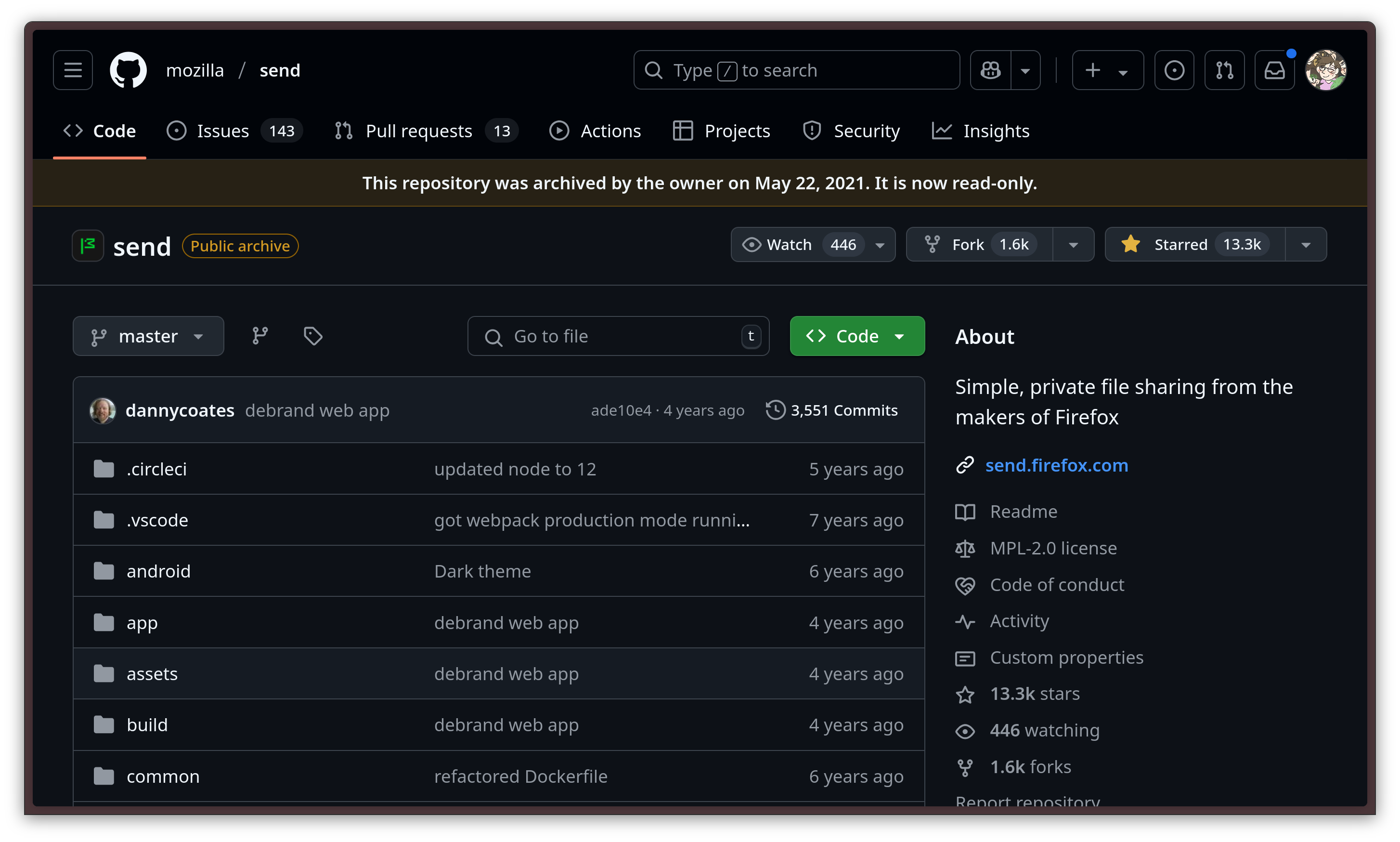
Thunderbird Appointment, which you may sign up for the beta test of, is an organization and time-management tool that promises to merge all your calendars into one, and make it easier to plan an event and manage appointments.
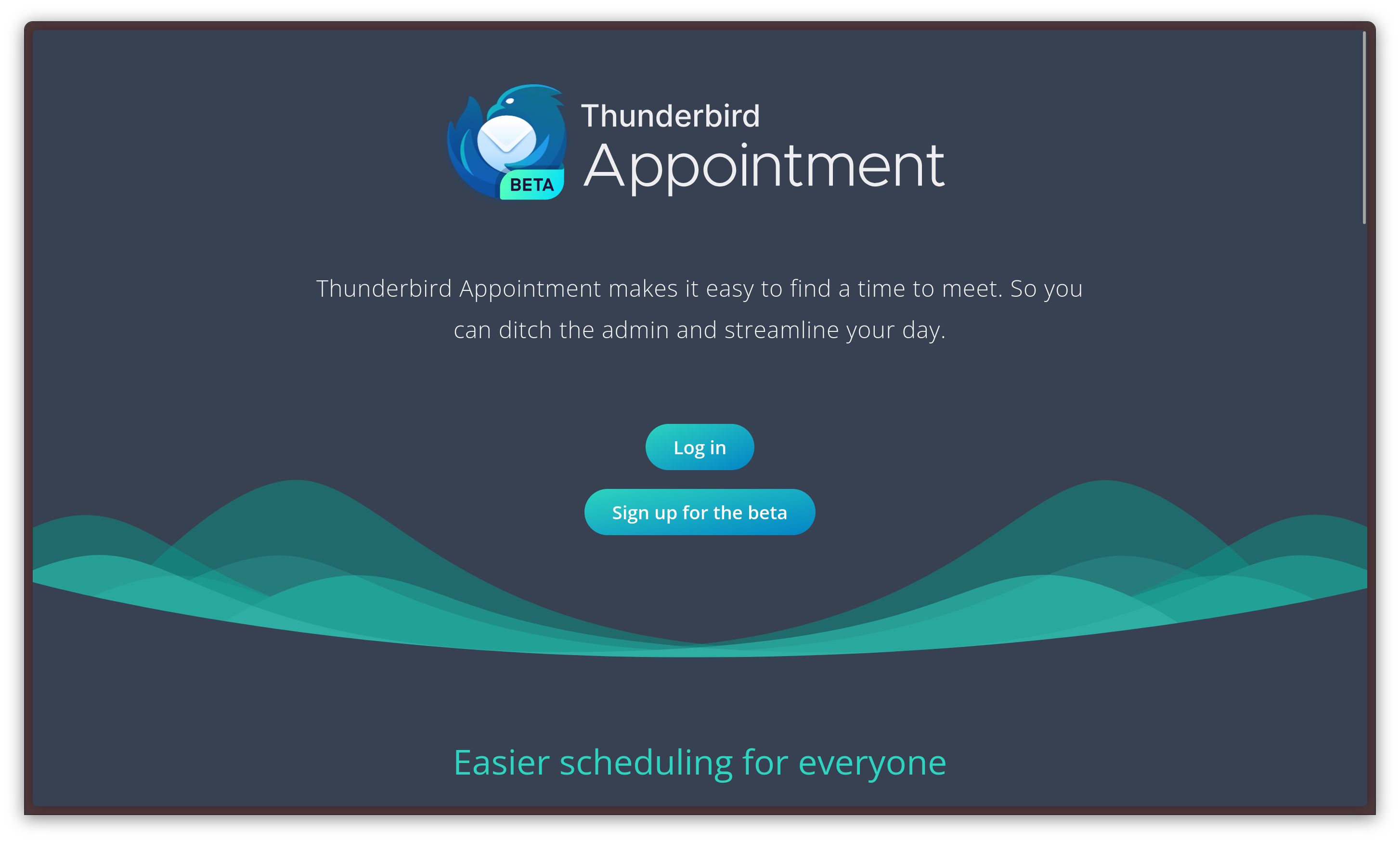
The desktop version of Thunderbird already has perhaps the best Calendar view on Linux, but it still suffers from the limitations of a local calendar: it's great for personal organization, but it can be a hassle to use it in a collaborative setting. This is precisely the problem Thunderbird Appointment wants to solve, by automating event invitations and interactions with other people transparently, as you interact with your calendar.

Last, but not least important, is Thunderbird Assist, is — as you might have guessed — an AI feature to help you to take advantage of generative AI for writing tasks, likely to generate entire e-mails, or manipulate the existing e-mail body in various ways. What sets this apart from the existing implementation on Google's and Microsoft's solutions is, once again, the privacy focus: rather than relying on some remote endpoint and forcing the user to sell their soul to take advantage of it, Assist wins the Large Language Models directly on the user's machine.
To do this, Thunderbird is partnering with flower.ai, an AI platform that is based on Federated Learning. Federated Learning is one of the fields of Artificial Intelligence you should keep under watch if you care about privacy: the entire concept behind Federated Learning is to train a model with heterogeneous data, shared between multiple entitles (“clients”) in a decentralized way. Each client keeps privacy on its own data, and it cannot know about the data held by other clients.

Mozilla says this feature is still experimental — which is believable, considering how ambitious it is.
I am hopeful Thunderbird Assist will develop nicely and turn out to be a success, though. We must face it: AI is here to stay — even if I and many others are still pretty cautious about it — and there are several tasks LLMs perform well at that can be very useful in the context of an e-mail service. As long as all processing can happen locally, respecting the user's privacy, honestly, I am fully on board.
The elephant in the room
While Thundermail sounds like an exciting product worth looking at, it's important to note that it is not the only product that is trying to steal some market share off of Redmond's and Mountain View's solutions. There are various other web-based, user-friendly, privacy-oriented email providers in the market, which you can compare and try independently starting from the relevant page on PrivacyTools. Some of these services are already very strong offerings with established trust and user bases, so Thundermail will need to offer something they don't to stand out.
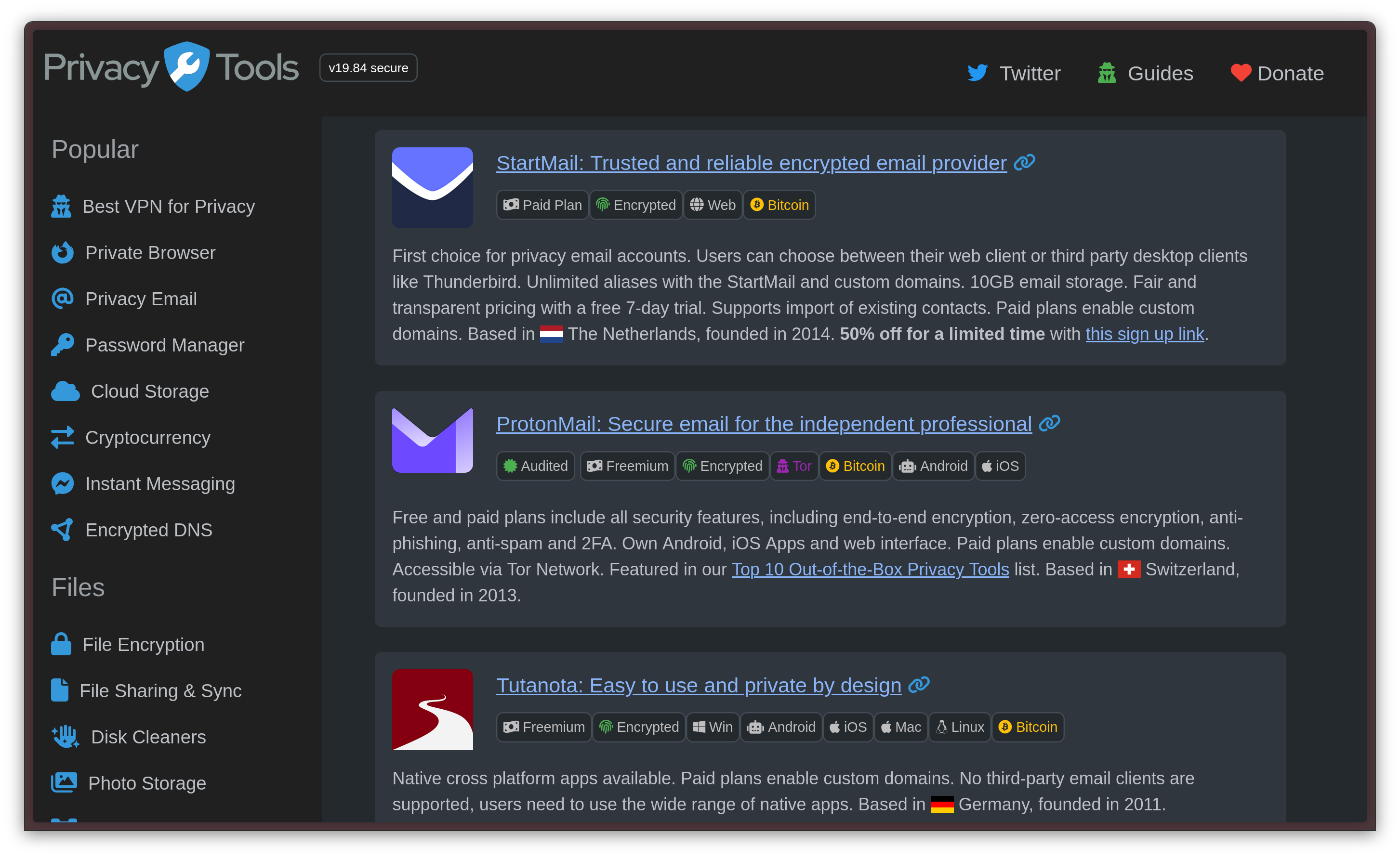
Regardless, Thundermail still remains a pretty interesting offering, which also represents the next step in Thunderbird's growth.
You can sign up for beta access right now. I did, and I can't wait to check it out for myself. I am already a loyal Thunderbird user, and using Thundermail would also support Mozilla, the company that funds the development of Firefox. This is crucial, since Firefox is the last majdevelopmentor free and open source browser that is not based on Chromium, and it also acts as the base for several other great projects, like my current favourite browser. Let's keep our fingers crossed!




